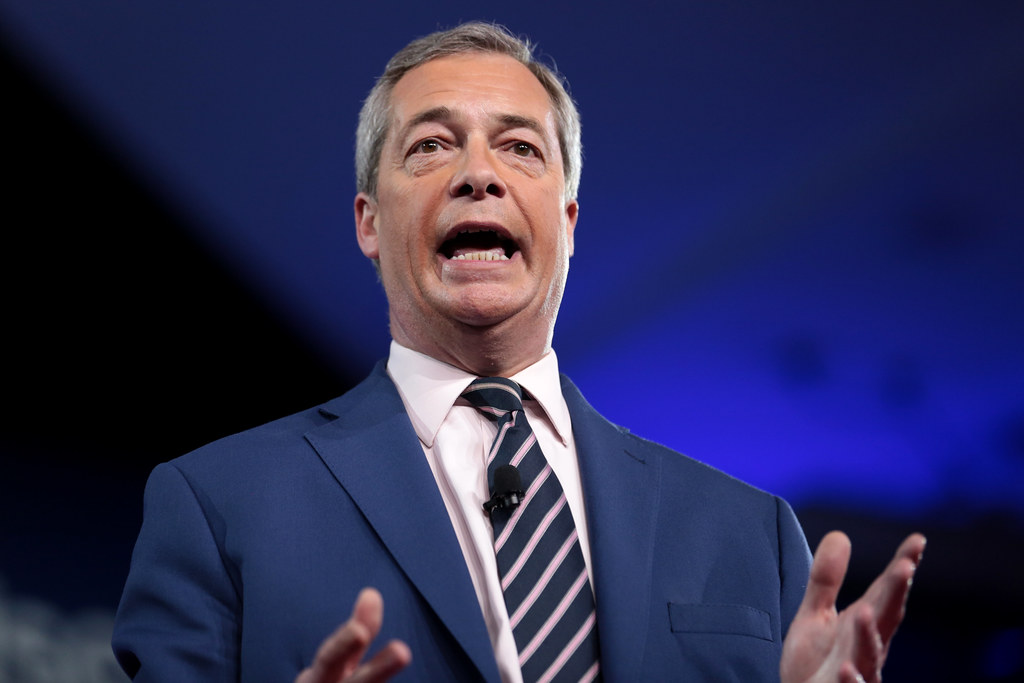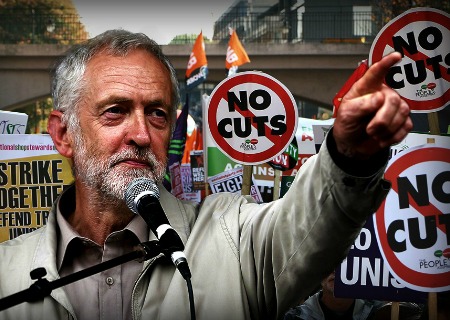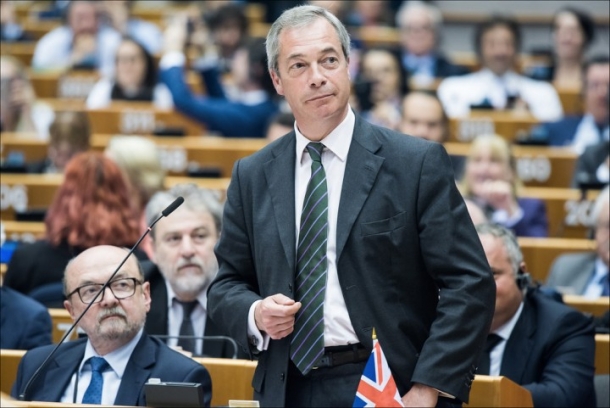Like a zombie returning from the dead, Nigel Farage is back to haunt the British establishment. Within weeks of its formation, his new Brexit Party has topped the opinion polls for the European elections on 23 May, most notably denting the support for the Conservatives.
This is both a symptom – and further cause – of the deep crisis engulfing the Tories. What we are witnessing is the developing split of the Tory Party, and the outlines of the future realignment of the right wing of British politics.
Betrayal
The dramatic rise of the Brexit Party is a product of the long-term inability of the ruling class to take society forward. The big-business wing of the ruling class has lost control over the Tory Party, which has become completely consumed by the question of Brexit.
With Theresa May unable to get her withdrawal deal through parliament, and Brexit repeatedly postponed, millions of Leave voters feel betrayed by the Westminster establishment.
These recent events have only added to the bitterness that has built up over decades. This mood was reflected in the previous European elections in 2014, in which UKIP came first.
 Beneath Nigel Farage and the Brexit Party's anti-establishment veneer lies a motley assortment of ex-Tories, bankers, and property speculators / Image: Flickr, Gage Skidmore
Beneath Nigel Farage and the Brexit Party's anti-establishment veneer lies a motley assortment of ex-Tories, bankers, and property speculators / Image: Flickr, Gage Skidmore
However, since the Brexit referendum in 2016, many UKIP members went back home to the Tories, who they believed would carry through Brexit.
The rump of UKIP moved dramatically to the far right, under the leadership of Gerard Batten. Following a string of party crises, Batten appointed EDL-founder Tommy Robinson as an ‘advisor’, in an attempt to rebuild a base from his hooligan supporters. This was a step too far for most leading UKIPers (including Farage), who abandoned the party to become independents.
With UKIP’s brand now toxic and the Tories in meltdown, Farage has taken the opportunity to launch the Brexit Party. With no manifesto, its only policy is to “fight to save Brexit”, and “to put a no-deal Brexit back on the table”.
The party tries hard to present itself as an anti-establishment outfit. Its campaign material attacks both Tory and Labour MPs, who are “humiliating” Britain through their Brexit “betrayal”. Farage promises to “put the principles of Trust, Honesty and Integrity at the heart of our democracy”, and to fix the “broken” political system.
“New-KIP”
It is this anti-establishment rhetoric that has catapulted the party to the top of the polls. Unlike Change UK, which has flopped as a result of defending the establishment status-quo, the Brexit Party’s appeal is precisely that it promises to shake things up.
In reality, however, the party is nothing more than a revamped, pre-referendum UKIP. Beneath its anti-establishment veneer lies a motley assortment of ex-Tories, bankers, and property speculators.
Its line-up includes 14 former UKIP MEPs, including Farage (a former City trader), David Coburn (a former City trader), and Jonathan Bullock (a former PR director / property speculator). Its chairman, multimillionaire Richard Tice, has a long career in property speculation, and is currently the CEO of real estate parasites Quidnet Capital. Ben “I do deals for a living” Habib, the party’s top candidate for the London region, is a “property fund manager”, and former “major donor” to the Tories. All men of the people indeed!
Those lining up to “restore trust in politics” include Ann Widdecombe, a former Tory minister, who is infamous for opposing the legality of abortions, opposing the repeal of “Section 28” (which prohibited schools from teaching the “acceptability of homosexuality”), and retaining blasphemy laws.
Already, two of the party’s leading figures have been forced to step back, after having been discovered to have made Islamophobic or anti-Semitic tweets. In short, the Brexit Party’s ‘anti-establishment’ mask has quickly begun to slip.
Split
The launch of the Brexit Party has laid bare the intense crisis within the Tories over Brexit. A questionnaire of Tory Party members on the Conservative Home website found that 62 percent were planning to vote for the Brexit Party in the European elections. Even worse, only 23 percent of Tory members said they would vote for their own party!
The picture is hardly better amongst Tory councillors, 40 percent of whom said they would vote for the Brexit Party. Even Tory MPs have indicated that they could vote for Brexit Party candidates. The Tories are therefore set for an historic electoral defeat.
The Brexit Party’s victory in the European elections could be the final humiliation for Theresa May. It would ramp up the pressure for her to step down, or be forced out. Under these conditions, her replacement would likely shift far to the right, in an attempt to win back support from Farage.
In turn, the ‘moderates’ in the Tories would likely split away. In any case, Parliament would remain paralysed. There is no parliamentary majority for a no-deal Brexit. A general election looks more and more likely.
Which way for Labour?
 Labour must position itself as the real anti-establishment party and fight the Euro elections on a bold socialist programme / Image: Socialist Appeal
Labour must position itself as the real anti-establishment party and fight the Euro elections on a bold socialist programme / Image: Socialist Appeal
Corbyn has correctly tried to cut across the Leave/Remain divide with a class appeal, posing things as between “the many and the few”. However, the Blairites of the Labour Party continue to scream for a second referendum, in support of the EU – that is, in support of the status quo. This defence of the establishment will simply drive a layer of Labour voters into the hands of Farage.
Instead, Labour must firmly position itself as the real anti-establishment party. To do so will mean fighting the elections on a bold socialist programme, making the call for a Socialist United States of Europe, instead of the rotten bosses-club of the EU.

